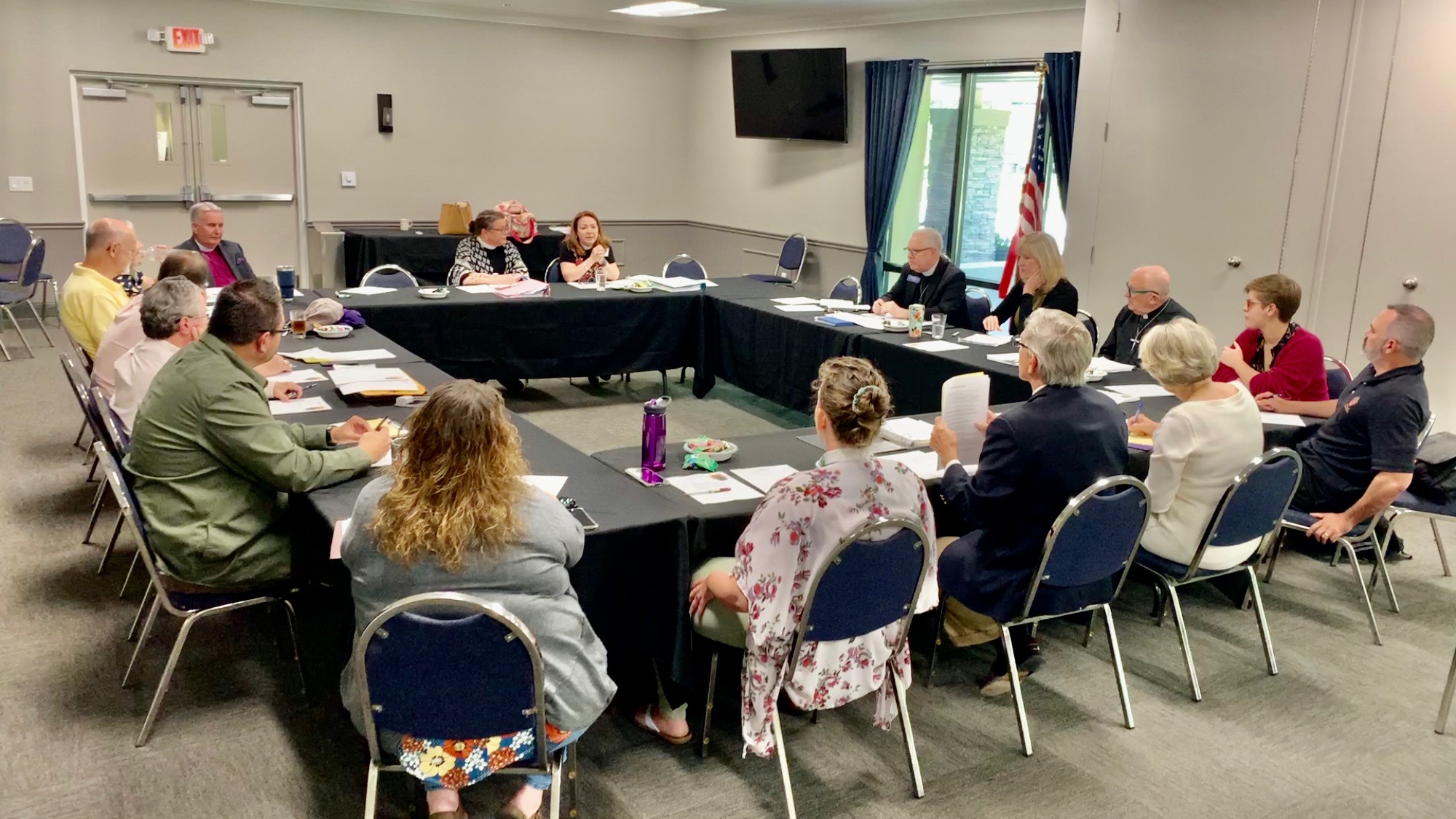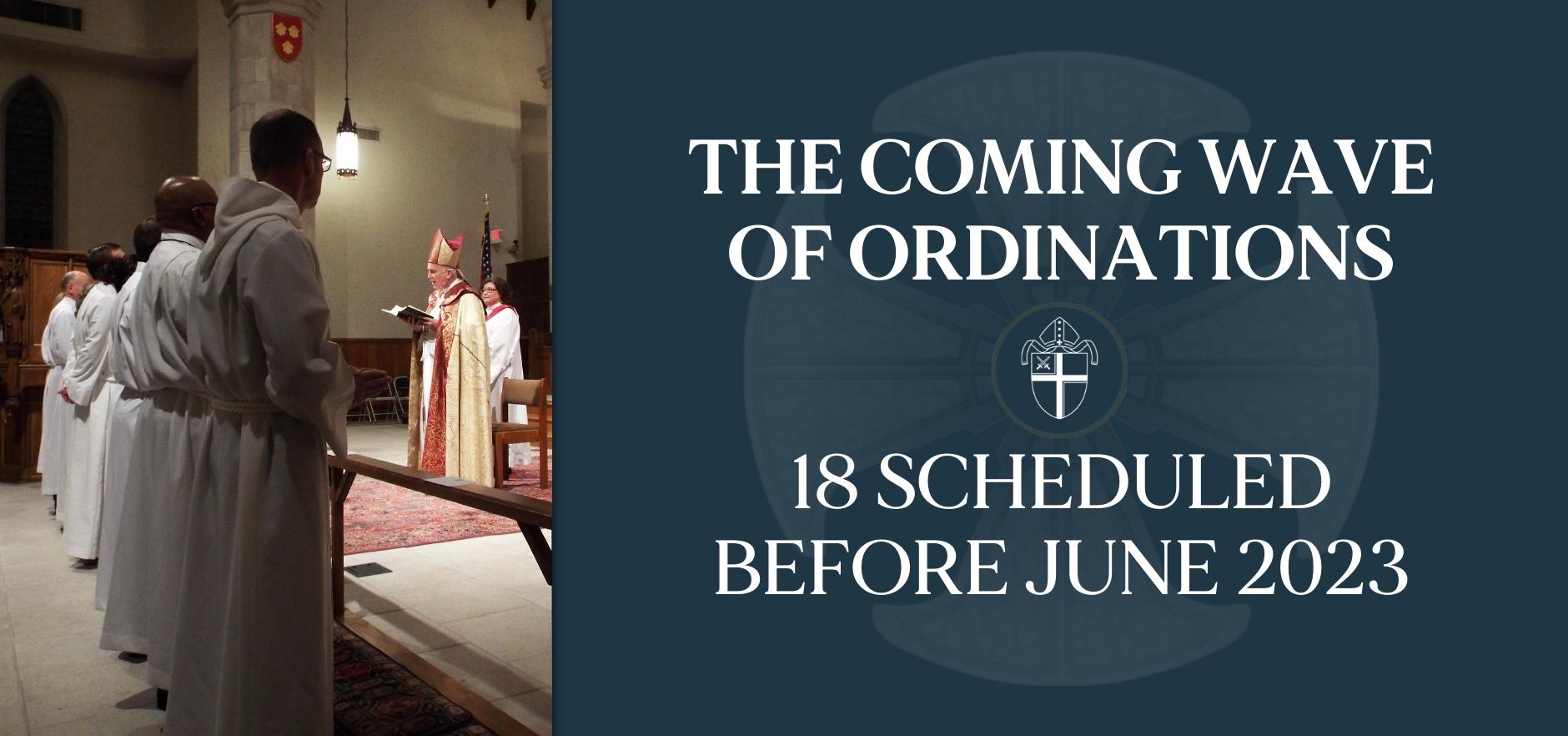The Rt. Rev. Gregory O. Brewer has been committed to raising up new leaders since his March 2012 consecration as bishop of the Diocese of Central Florida. With Brewer’s pending retirement in July 2023, the final year of his episcopacy will see his commitment to leadership development crescendo; 18 people are on track to be scheduled for ordination between June 2022 and June 2023.
At the annual Diocesan Convention in 2013, Brewer presented his strategic vision for the diocese, which states in part, “We are raising up new leaders, and are committed to doing so both with time as well as finances, both for clergy and laity.” That vision led to a number of dramatic changes.
In December 2013, Brewer created a new position in the diocese, canon for vocations, and hired The Rev. Canon Dr. Justin Holcomb to fill the role and create a leadership development pipeline.
The Ven. Kristi Alday, archdeacon, incorporated online education through the Institute for Christian Studies to streamline the training of deacons. “We purposely shortened our process for deacons from four to two years,” Alday explained. “Online classes helped.”
Over the years, Brewer’s emphasis on raising up new leaders was enthusiastically adopted in parishes across the diocese, and he has worked hard to ensure diocesan leadership reflects the diverse demographics in our communities.

The Commission on Ministry met on March 25, 2022, to discuss members’ interviews with prospective ordinands.
With the support of Brewer’s staff and the Commission on Ministry, led by Chair Orman Kimbrough, the many changes resulted in the strategic vision becoming reality. During Brewer’s 10-year episcopacy, 130 people have been ordained. According to Kimbrough, “Typically, in our province here in the southeastern part of the United States, many of those dioceses may only ordain six or seven people a year, sometimes three or four.”
While it’s impressive to note that having 18 people scheduled for ordination in the next 12 months is 38% more than an already-high yearly average, the numbers raise a question as to the reason behind such a dramatic increase.
“People can’t be ordained until they’ve completed all of the canonical steps and requirements in the discernment process,” Holcomb explained. “Nothing about the process has changed.”
In addition to the rigorous educational and screening requirements of that process, there are also strict time constraints. Prospective ordinands in both orders, priesthood and diaconate, must be engaged in the discernment process for a minimum of 18 months before becoming eligible for ordination to their calling. New transitional deacons, as opposed to permanent deacons, are called to serve as deacons for a minimum of six months before they are qualified for ordination to the priesthood.
“There are certain time frames that need to be met, obeyed and honored,” Holcomb said. “What’s happened is that people who have started the process under Bishop Brewer’s episcopacy want to be ordained by him. So, there was a deep drive in many of the aspirants and postulants to fulfill other requirements a little bit sooner than they normally would in order to be ordained to the transitional diaconate in December of 2022.”
Of those called to the priesthood, six are on track to be ordained as transitional deacons on Sept. 10, 2022, and eight are scheduled for Dec. 7, 2022. The latter date was selected so those ordained to the transitional diaconate in December are able to serve as deacons for the required six months before ordination to the priesthood by Brewer, all before a new bishop is consecrated on June 10, 2023.
In addition to the 14 people in the priesthood track, four permanent deacons are scheduled to be ordained in the next year as well. Brewer expects to ordain 11 priests before he retires, five current transitional deacons and six from the group he will ordain in December 2022.
It’s tempting to focus on the impressive implementation of a strategic vision and the numbers that point to success, but those numbers also represent the personal stories of the 18 diverse individuals seeking to discern God’s calling and will for their lives. Among the prospective ordinands are a number of young seminarians, a married couple going through the process together, a Vietnam veteran, a former teacher, a seminary professor, an Army chaplain and a high school principal, just to highlight a few. All are stepping out in faith in ways that will transform their lives, serve many churches in the diocese and make an eternal impact.
“It’s a privilege to walk alongside people who are seeking answers from God, trying to figure out how best to serve,” Kimbrough said. “For us on the Commission, it’s not a job; it’s a privilege.”

